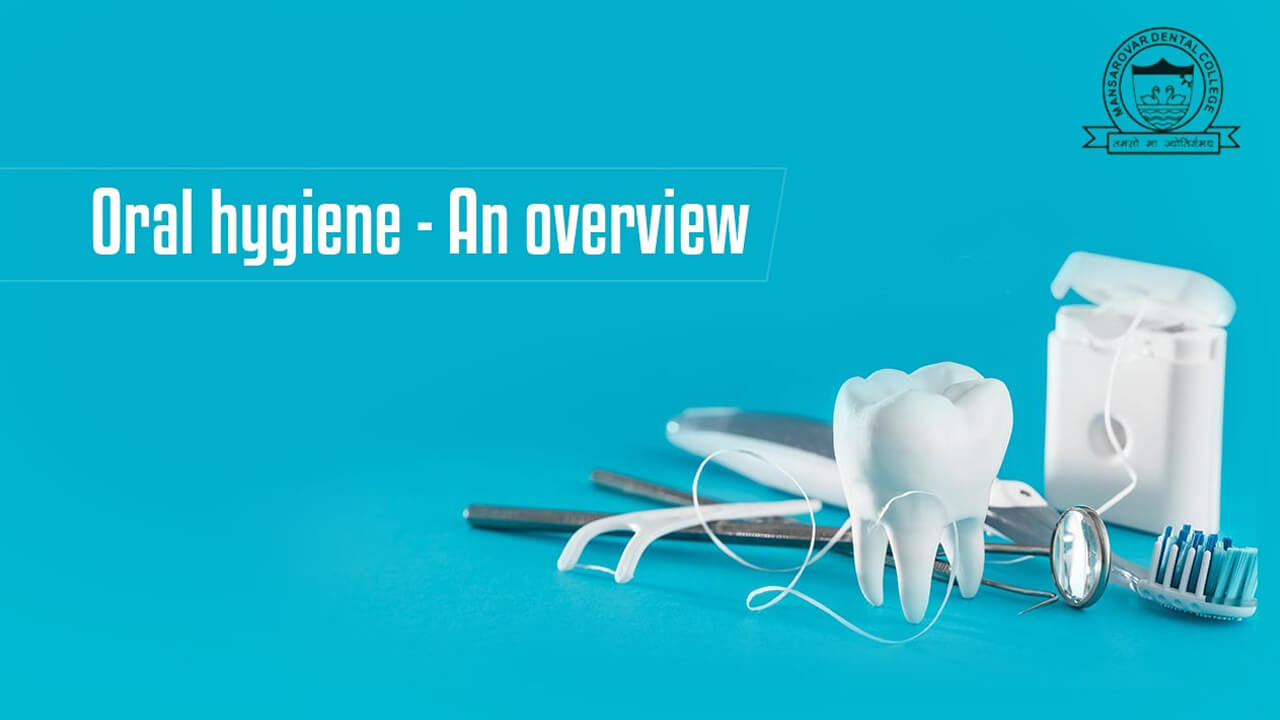
Oral hygiene is the practice of taking care of teeth and gums through daily brushing and flossing. Regardless of the common assumption, oral hygiene is more than flashing pearly-white teeth. It is the total cleaning of your gums, teeth, and mouth every single day. Good oral hygiene includes daily cleaning rituals and regular check-ins with the dentist. Your hygiene can include products and routines that can be best practiced by you. Oral hygiene covers the basics of dental and oral care, and although it is highly underrated, ignoring it can have an immediate impact on your teeth and gum health.
Apply for BDA/MDS Course at Mansarovar Dental College, Bhopal
Oral hygiene is all about taking preventative measures so you can negate the possibility of larger problems such as gum disease, bad breath, cavities, and other health risks. The status of your mouth is one of the most important indicators of your entire health profile. Any infection precipitating inside your mouth can travel to the entire body within seconds. Keeping your teeth and gums healthy sounds easy, yet many people fail to complete the ritual every day. A healthy mouth mirrors a healthy body. For example, constipation can manifest in your mouth with a form of ulcer, and jaundice often presents itself with a yellow tongue. This is why maintaining sound oral hygiene is important, because your mouth is your window to the insides of your body.
Also Read: Top 7 reasons claiming the importance of oral health
There are several warning signs of deteriorating oral health that must be heeded before it transforms into larger issues. The commonly visible signs of poor oral hygiene are:
There are many types of oral hygiene. Here are some of the best tips for each of the routines:
We love your smile, and we hope you keep it up. The best way, of course, is to be regular at the dentist's office. Dental health is often underestimated in the grand scheme of things. But keeping a clean set of 32s is essential if you want to have a fulfilling personal and professional life.
Oral cancer is aggressive and relentless. It can progress rapidly and often goes unnoticed until it's very late. There's only one way to keep it in check, and that is through regular visits to the dentist.
Dentists equip you with vital information with regard to your oral care. Instituting these tips in your daily routine can save your precious teeth from a ton of irreversible damage.
A root canal is cheaper than a dental replacement, and scaling is cheaper than a root canal. The price of dental procedures only increases as time goes. It is better to have bi-yearly checkups and keep your teeth in line, or else you will have a long bill with your name on it.
Our bodies are subjected to intense changes throughout our lives. The habits that sustained us in our 20s won't hold ground in our 30s. The same is with our oral care. Being in regular touch with dental experts keeps us updated on the changing anatomy of our mouth.
No matter how many old people you see rocking dentures, they are not an integral part of your growth. You can have healthy teeth until the end of your life, given you pay proper care and attention to them in the years that matter. Dentists equip you with treatments that aid in prolonging your natural teeth.
Preventative dental care is affordable and so much better than emergency care, which can burn a hole in your pocket and can lead to severe pain. Good oral hygiene is one that can be practiced by you every single day. Mansarovar Dental College, Bhopal recommends not to complicate some basic steps such as brushing and flossing. By following these basic guidelines, you can achieve sound oral hygiene too.
© 2017 Mansarovar Dental College Powered by SynQues